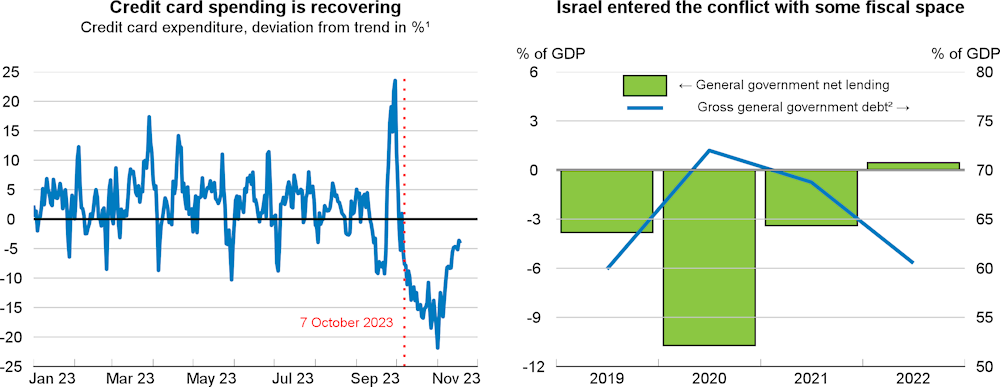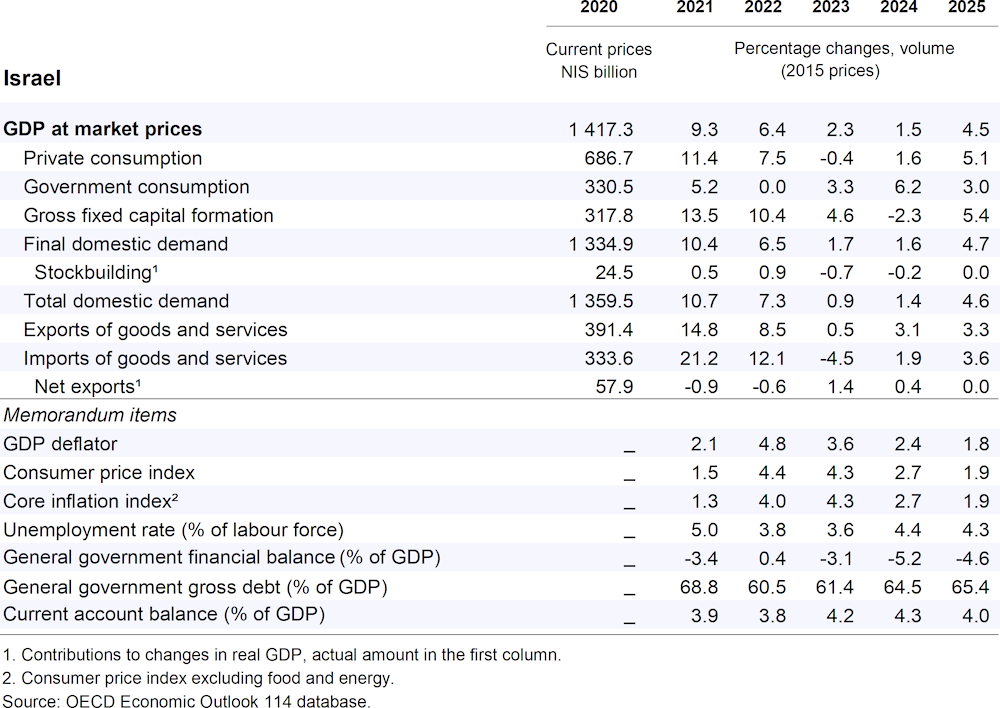The economic impact of the evolving conflict following Hamas’ terrorist attacks on Israel on 7 October is highly uncertain and depends on the duration, scope and intensity of the conflict. The projections assume that the impact will be largely concentrated in the last quarter of 2023, leading to a temporary but pronounced slowdown. GDP growth is projected at 2.3% in 2023 and 1.5% in 2024 before recovering to 4.5% in 2025. Supply side disruptions due to the security situation and the significant decline in the civilian labour force, together with weakening economic sentiment, will mainly affect private consumption and investment. A drop in tourism will weigh on export growth.
Monetary policy accommodation in the near-term will depend on uncertain exchange rate and inflation developments. Fiscal space built up after the pandemic can help provide temporary support to households and firms affected by the war and meet spending needs for defence, security and reconstruction. This should be accompanied by reprioritising permanent expenditure, while safeguarding growth-enhancing spending on infrastructure and skills provision. In the medium term, labour market and educational reforms are needed to address demographic challenges and reduce wide labour market disparities.


